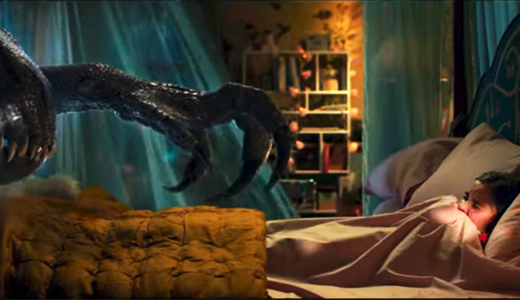It’s been said that people are made of stories, and I believe it’s true. So it’s telling that our own collective story begins with a tragedy.
By Genesis’ second chapter, the tragedy is well underway. Everything seems just fine at first: Adam and Eve have been created and given a garden to take care of, filled with animals to name and fruit to eat and eternal life to enjoy. Just one rule: Don’t eat the fruit from that one tree in the center. Just that one tree. Simple, right?
But then along comes the serpent—the story’s great, slithering antagonist—and convinces Eve to chow down on a bit of that forbidden fruit. Adam does likewise and … well, we know how the rest of the story goes. The reason I’m writing this blog right now—earning my living by the sweat of my fingers—is all Adam and Eve’s fault.
Probably not many in Hollywood believe that the Garden of Eden was a real place. But metaphorically, its movies return to the theme of a paradise lost again and again. And in some ways, the Jurassic series of movies is a classic example. From the first Jurassic Park to this year’s Jurassic World: Fallen Kingdom, there’s a sense of an innocence gone awry through sin.
In the original, director Stephen Spielberg visually emphasized—with its towering brachiosaurus to its lush vegetation to its deceptively peaceful environs—that John Holland’s “creation” was an unspoiled Eden of sorts. A place of sacred remove from the fallen world of man.
But Holland’s Isla Nublar was itself a corrupted creation, a man-made construct powered by hubris and laid low by greed.
It’s been said that Lucifer’s sin—the sin which all others spring from—is pride. And in the original Jurassic Park, Holland’s own pride is called out again and again. “Gee, the lack of humility before nature that’s being displayed here … staggers me,” Dr. Ian Malcom says. Well-intentioned or no, Holland plays God with his park, and Malcom suggests that that act of pride made the park’s failure inevitable.
But the ultimate catalyst for that failure was greed.
Dennis Nedry, like Adam and Eve, lived and worked in the paradise that was Jurassic Park. He was given dominion over it, in a sense, creating the code for all of its systems and security. But like Eve, he was tempted by a forbidden fruit—the promise of unimaginable wealth. Like Eve, he had everything he really needed … but wanted more. And so he plucked the fruit (in the form of several dinosaur embryos), turned off his own security systems and brought the place down.
Through five movies in the Jurassic franchise, we’ve seen elements of that lost Eden again and again, paradise laid low by pride and greed. In Jurassic World: Fallen Kingdom we see that echo once more—with perhaps (judging from the trailer) the results of that hubris and greed leaking out of Eden and into our own, already fallen kingdoms.
I’ve been reminded—I think we all have been—of how fallen these manmade kingdoms of ours truly are as of late. Someone shot up a newsroom in Maryland yesterday, killing five. Some say that we’re in the midst of an anxiety epidemic. Suicide rates across the country are rising, and it’s now the 10th leading cause of death in the United States. In 2017, the Centers for Disease Control and Prevention noted that 157,000 youth between the ages of 10 and 24 are treated for self-inflicted injuries every year. And many families are experiencing their own private pains.
Monsters are among us, certainly, but they’re sneaky ones: snakes in the shadows, not T-Rexes on the rampage.
And how do we deal with such monsters? By doing the opposite of what nurtures them in the first place. Instead of pride, we show humility. Instead of greed, we give. Instead of hate, we love. These “weapons” aren’t the sorts that make for a great blockbuster movie, of course, but I think they can make a better world.
Oh, and as Christians, we have the greatest weapon of all. Faith. We can’t pretend that the world is all sunshine and flowers. It can be a miserable place, and just getting from one day to the next can be a struggle for some. But through faith, we have hope: hope that we can survive this fallen kingdom, repair what we can of it and, eventually, find ourselves in a better one.
“In this world you will have trouble,” Jesus told us in John 16:33. But He also added, “Take heart; I have overcome the world.”






Recent Comments